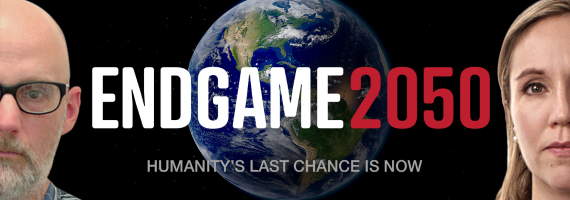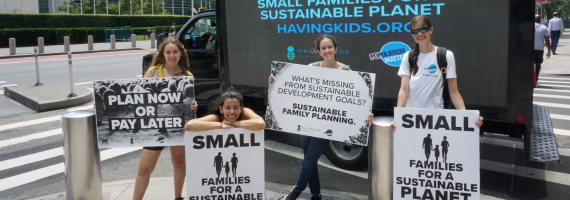Endgame 2050
by Robin Maynard, Director, Population Matters
“Conservation is an empty word if we continue our population growth” – one of many memorable quotes from doctor turned environmental filmmaker, Sofia Pineda Ochoa’s, ‘Endgame 2050’, which I’ve just watched ahead of Population Matters panel discussion next week with some of the luminaries interviewed. By luminaries, I mean those shining a clear light on the facts – a minority in the environment movement. It is time to dispel illusions, tech-fixes & sci-fi fantasies. Moby, who provides much more than just the sound-track to the film, does that brilliantly. Dismissing his own brief fantasy for a giant ‘carbon hoover’, “I don’t want that, I want us to stop treating the planet like a garbage can”, and popping the bubble bedazzling so many in the media, “Sorry, Elon Musk, Mars isn’t an option – not for 7 billion people…”
Examines Willful Blindness
Endgame 2050 examines the wilful blindness of the media, politicians, and all of us to a greater or lesser degree, despite the facts. A comforting illusion routinely peddled is that our population, rather than continuing to increase, is crashing. Propagating a ‘vision of the future’ in which small populations of humans crowd tightly into urban centres beyond which ‘wild animals prowl’. When in fact, the decline of rural populations is due to young people migrating to the cities for better livelihoods and industrial, mechanised agriculture displacing traditional farming.
Wild Animals Prowl
Never mind the gothic trope of demonising Canis lupus lupus! Wolves are key to conservation in places like Yellowstone National Park, keeping down excess deer numbers. Fatal attacks on humans are extremely rare, as are wolves – at most three thousand inhabit Spain, compared to over 46 million humans. More space for nature should be welcomed, not feared.


